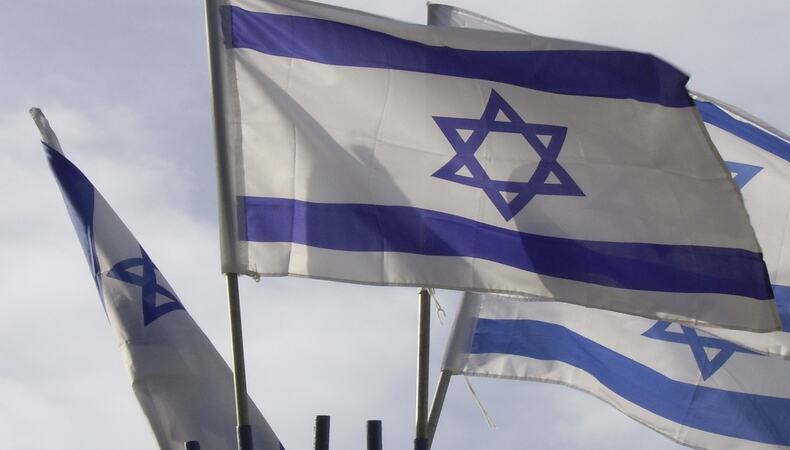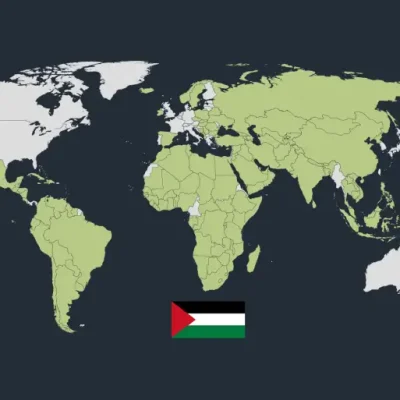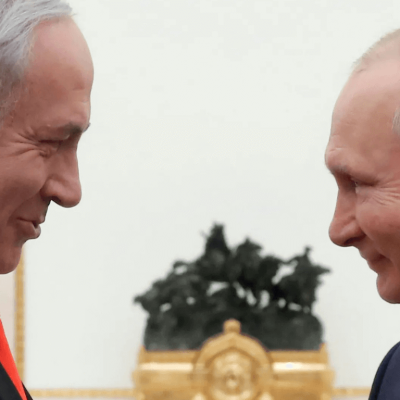Hamas Leader Killed in Israeli Airstrike as Violence Escalates Across Lebanon

Early on Monday, the militant group Hamas claimed the killing of its head in Lebanon, Fateh Sherif Abu El-Amin, together with his wife, son, and daughter. They were slain during an Israeli airstrike aimed at their house in a Tyre, southern Lebanon, Palestinian refugee camp.
As Israel increases its military operation in the area, this episode represents a notable escalation in the already severe war between Israel and militant organizations in Lebanon, notably Hezbollah. With increasing civilian and terrorist losses, the strike fits into a larger wave of violence engulfing Lebanon.
Israel Targets Hezbollah: A Week of Intensifying Conflict
Israeli assaults over the previous week have progressively focused on Lebanon, especially territory under Hezbollah control. The Health Ministry of Lebanon claims that Israeli strikes around the nation have claimed over 1,000 deaths.
Targeting Hezbollah, a militant group supported by Iran and long-time enemy of Israel, these strikes have resulted in significant casualties including the murder of important officials. Most importantly, one of the strikes claimed the life of Hezbollah’s commander, Hassan Nasrallah, therefore upsetting the group’s leadership system. The death of Nasrallah has had significant effects not only for Hezbollah but also for the general dynamics of the conflict.
Hezbollah, with great influence in the political and military scene of Lebanon, has promised to exact revenge for the killing of Nasrallah, therefore aggravating the situation in the country. Apart from Nasrallah, Israel’s air campaign has eradicated several other top Hezbollah commanders including Ali Karaki, a senior commander overseeing Nasrallah’s security detail, and Nabil Kaouk, the deputy head of its Central Council. With strikes concentrating on Hezbollah’s bases in southern Lebanon, Israel claimed to have killed at least 20 terrorists of the organization in these operations.
Central Beirut Targeting for First Israeli Airstrike
The airstrike on Monday marked the first time Israel had struck central Beirut in this current wave of war, therefore greatly increasing the stakes. It was a multistory residential structure in the middle of the city, resulting in extensive damage. While city dwellers gathered close to the collapsed building, video from the scene showed emergency services racing to save the injured.
The attack on central Beirut is a clear escalation in Israel’s approach, which up until now had mostly concentrated on Hezbollah’s positions in southern Beirut and other places where the group is rather prevalent. Many of the people who have left their houses in expectation of more strikes have been terrified by the devastation in the city core.
Already beset by economic uncertainty, the capital of Lebanon now suffers further from air raid damage.
Palestinian Factions also Targeted
Apart from Hamas, Palestinian groups functioning in Lebanon have also fallen into the crossfire. Three of the militant members of the Lebanese-based Popular Front for the Liberation of Palestine (PFLP) were reportedly killed in recent Israeli attacks.
Although the PFLP has not been very important in the continuous conflict between Israel and Hezbollah, its participation emphasizes the complexity of the situation in Lebanon, where several militant groups function with different degrees of impact.
Escalation Across Lebanon: Widespread Strikes and Civilian Casualties
The violence extends beyond Beirut. Reports of Israeli airstrikes have surfaced throughout Lebanon, particularly in the southern city of Sidon, where two separate strikes claimed at least thirty-two fatalities. A key point of Israel’s military operation, Sidon is 28 miles south of Beirut. Among the worst strikes in the past week, the ones on Sidon have added to the fast increasing death toll.
Israeli bombings in the northern province of Baalbek Hermel apparently killed 21 persons and injured 47 more. Along with in the southern portion of the nation, Lebanese media have documented scores of strikes in the central, Eastern, Western Bekaa areas. Israel insists that the strikes are directed at militants, but many of the targeted sites are populated by people, which fuels increasing concerns of a humanitarian crisis as the casualty count keeps rising.
Concerns regarding the capacity of Lebanon to provide sufficient medical treatment for the injured have been raised by the reports of at least 14 medics slain in the southern portion of the nation during the past two days. The already delicate healthcare system of Lebanon is clearly strained as the conflict grinds on.
Response of Hezbollah: Enhanced Rocket Attacks
Hezbollah has greatly upped its rocket fire in retaliation to the Israeli strikes. The organization has raised daily rocket fire from several dozen to several hundred during the previous week. Although most of the rockets and drones fired by Hezbollah have been intercepted by Israel’s air defense systems, or have fallen in open areas, the sheer volume of strikes is evidence of the group’s will to keep on its war against Israel.
Hezbollah has shown no indications of backing down despite Israel’s attempts to undermine its capacity by focused bombings. Israeli military authorities have admitted that had Israel not carried preemptive operations against Hezbollah‘s launch sites and command centers, the total count of missile launches would have been far more higher.
Several injuries have been recorded and infrastructure in northern Israel has been damaged by the higher rocket bombardment. As the prospect of rocket strikes still looms big, Israeli authorities have advised northern residents to find cover.
Iran’s Participaction and Regional Consequences
The involvement of Iran, a major supporter of both Hezbollah and Hamas, complicates the struggle between Israel and Hezbollah even further. Iran’s Supreme Leader Ayatollah Ali Khamenei issued a strong warning following the killings of top Hezbollah commanders, including Nasrallah, promising to inflict “even more crushing blows” to Israel in reaction to the strikes.
Iran has long supported Hezbollah militarily and financially, and its participation in the present crisis begs questions regarding the possibility of a more general regional war. Iran’s posture in the fight is fragile. Although it has promised to exact revenge for the Israeli strikes, analysts advise Tehran has a tough decision to make. Any direct military reaction from Iran might result in a full-scale conflict, a situation Iran seems eager to avoid.
Research fellow Hamidreza Azizi of the German Institute for International and Security Affairs pointed out that earlier this year Iran’s missile and drone strikes on Israel did not stop more Israeli activity, therefore Tehran was left with a conundrum regarding future direction. Tension has been raised even more by the killing of Hamas leader Ismail Haniyeh in a past Israeli raid on the Damascus consulate. Iran has promised to exact revenge for his assassination, but it has so far refrained from intensifying the fighting perhaps because of the great chance of starting a larger war.
But given Hezbollah’s current losses, it is impossible to exclude an Iranian reaction.
Reactions internationally and the demand for diplomacy
International officials have voiced increasing worry on the possibility of a full-fledged regional war as the dispute keeps getting more intense. Closely observing the matter, U.S. President Joe Biden has advised both sides not to let things become much worse.
Emphasizing the need of a diplomatic settlement to the crisis, Biden said on Sunday that he would be speaking with Israeli Prime Minister Benjamin Netanyahu. Biden’s remarks capture a general worldwide view that an all-out conflict in the area would have disastrous effects. Though it supports Israel’s right to defend itself, the United States is eager to prevent a protracted battle that may destabilize the Middle East and attract other regional powers.
Right now, there is no indication of the conflict between Israel, Hezbollah, and Hamas easing. The situation in Lebanon is still terrible with daily airstrikes and rocket strikes still under progress and increasing death toll. Though the road to peace is yet unknown as emotions flare on all sides, the entire community is intently observing and hoping for a solution that will stop more carnage.




